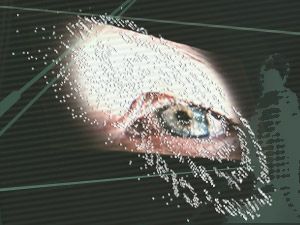‘Critical Purchase in Neoliberal Times’ is an edited conversation with Ien Ang and three members of the Cultural Studies Praxis Collective (CSPC): Miriam Bartha, Bruce Burgett, and Ron Krabill. The transcript of the conversation conducted at the University of Washington was reworked and revised by the interlocutors. The document as a whole surfaces and addresses a series of questions about engaged and community-based forms of cultural studies scholarship; multiculturalism, cosmopolitanism, and media policy; and the future of the transnational field of cultural studies in the context of the neoliberal turn in global higher education.
Culture Industries
Culture Industries: Critical Interventions
This thread presents a different agenda for studying culture and the culture industries in particular, one that is grounded in a distinctly cultural studies materialist reflexivity. Cultural studies is probably best understood as the politically committed, theoretically grounded, and radically self-reflexive and historical-materialist analysis of cultural processes and practices, where the commitment to imagine a humane, socialist society has always been a guiding assumption in the field from its early formations in post-war Britain.
“Nothing gold can stay:” Labor, Political Economy, and the Birmingham Legacy of the Culture Industries Debate
Over the course of the last 150 years or so, we can see three distinct phases of the culture industry. More specifically, there have been (at least) three eras marked by different configurations of the relationship between culture, politics, the dominant mode of production and the commodification of culture. Cultural Studies emerged from the second era, whose contours I’ll explore here; and we are now in a liminal phase brought on by the uncertain conflagration between the neoliberalism, convergence culture, and nascent popular uprisings under the banner (and hashtag) #occupyeverywhere. This third phase, or conjuncture, once again reconfigures these relations, making it important to revise the theoretical assumptions and political strategies that were adhered to in an earlier era of “the culture industry.” I will outline the direction I think this points to both in our understanding of the culture industries and in terms of political and theoretical strategy going forward.
Distributed Centralization: Web 2.0 as a Portal into Users’ Lives
Web 2.0 as a whole is beginning to take a decidedly interconnected shape. Facebook, Google, YouTube, Wikipedia, Blogger, Twitter and other Web 2.0 sites are linked to one another in a complex and bewildering array of Application Programming Interfaces (APIs), user-created applications, links, protocols, and browser extensions. To trace these connections, this paper draws on the intersection between computing, software engineering, and the management of labor in informational capitalism to uncover an architectural model with which to understand this complexity: the portal model. We will see how the interconnections between Web 2.0 sites, built on de facto protocols, is creating the Web as Portal, an architecture built to capture value produced by users, value that was previously hidden as unstructured data. Web 2.0 as a portal is rife with contradictions: on the one hand, the Web (and Internet) remain distributed networks, and Web 2.0 applications could easily be mapped as distributed. On the other hand, extremely popular sites such as Facebook (for social networking) and Google (for search), as well as the increasing interconnection between them, are rendering Web 2.0 to be a centralized network. This distributed centralization is part of the larger portal architecture, wherein heterogeneous sites are articulated into a network of networks.

